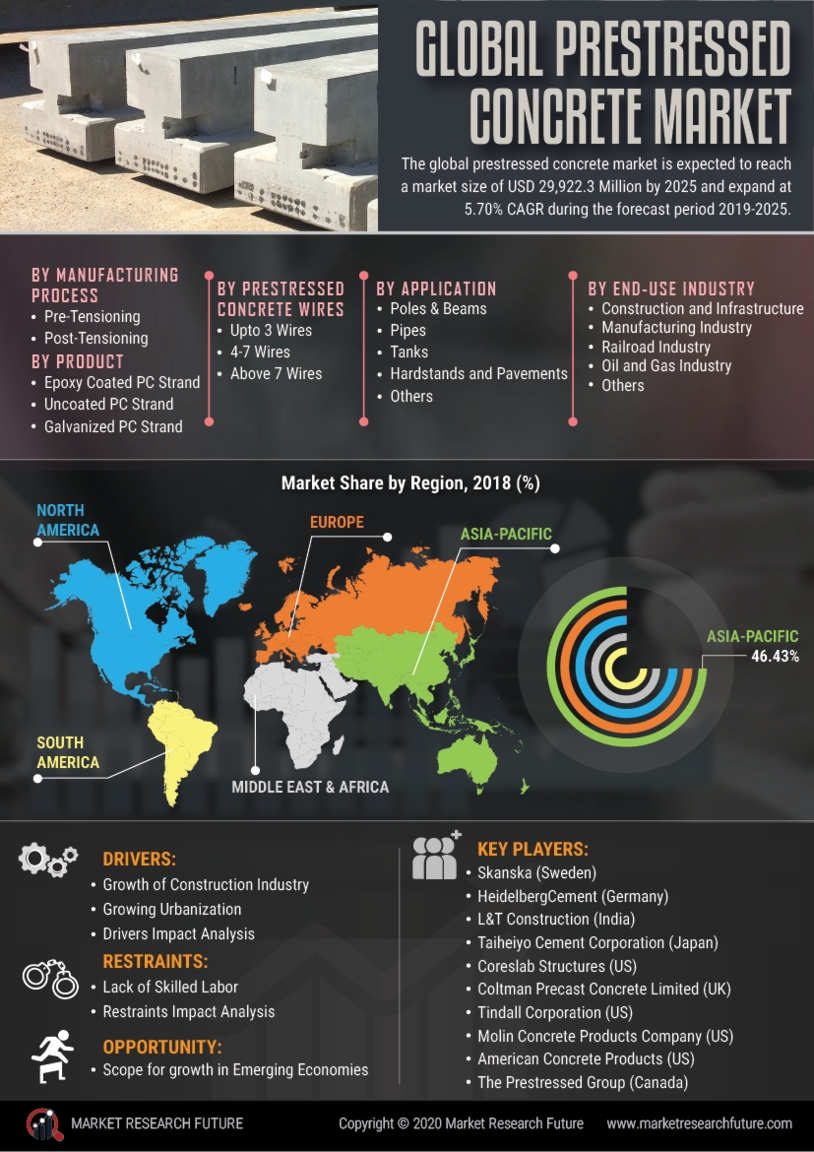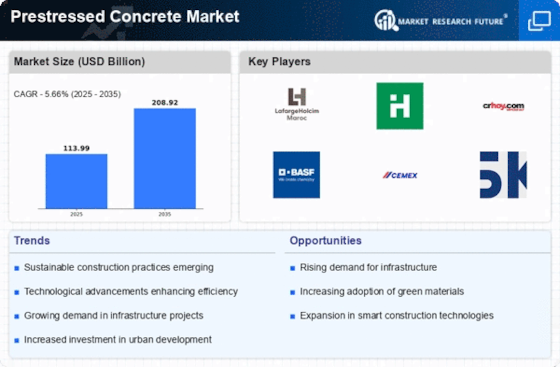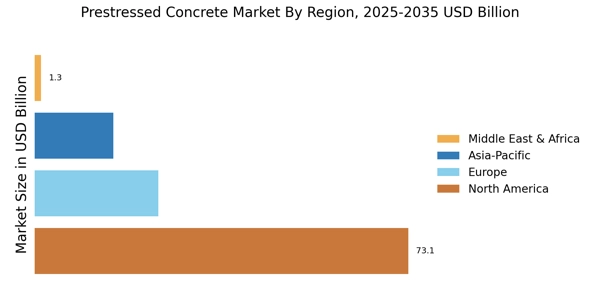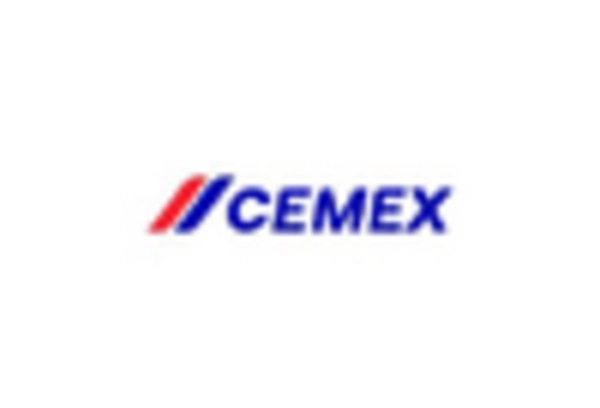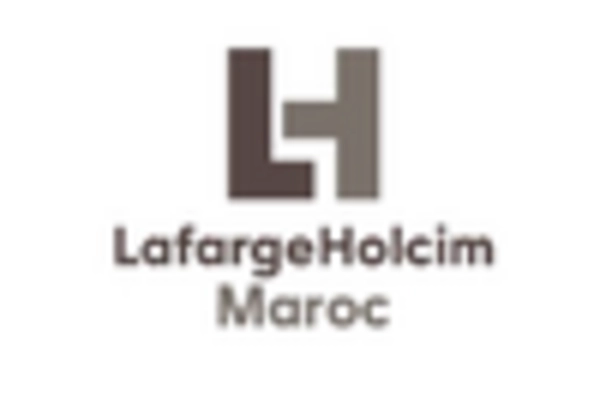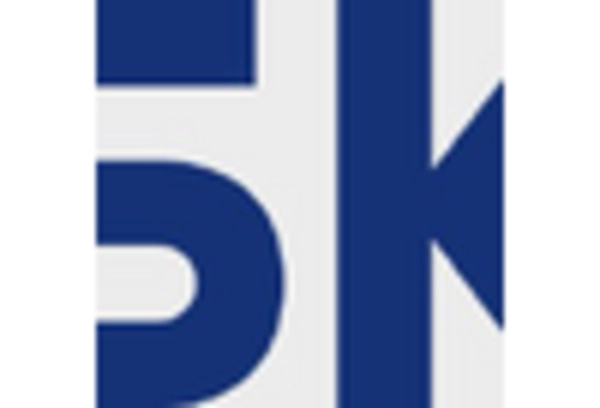Sustainability Initiatives
The increasing emphasis on sustainability initiatives is a pivotal driver for the Prestressed Concrete Market. As environmental concerns gain traction, construction practices are evolving to prioritize eco-friendly materials and methods. Prestressed concrete, known for its durability and reduced material usage, aligns well with these sustainability goals. The industry is witnessing a shift towards using recycled materials in concrete production, which not only minimizes waste but also lowers carbon footprints. According to recent data, the demand for sustainable construction materials is projected to grow at a rate of 8% annually, further propelling the adoption of prestressed concrete solutions. This trend indicates a potential for significant market expansion as stakeholders seek to meet regulatory requirements and consumer preferences for greener building practices.
Technological Advancements
Technological advancements are reshaping the landscape of the Prestressed Concrete Market. Innovations in design software, manufacturing processes, and material science are enhancing the efficiency and performance of prestressed concrete structures. For instance, the integration of Building Information Modeling (BIM) allows for precise planning and execution, reducing errors and waste during construction. Furthermore, advancements in high-strength materials enable the production of lighter and more resilient prestressed concrete components. Market data suggests that the adoption of advanced technologies could lead to a 15% increase in productivity within the construction sector. As these technologies become more accessible, they are likely to drive the growth of the prestressed concrete market, attracting investments and fostering competitive advantages.
Government Regulations and Standards
Government regulations and standards play a significant role in shaping the Prestressed Concrete Market. Stricter building codes and safety regulations are being implemented to ensure the longevity and safety of infrastructure projects. Prestressed concrete, with its inherent strength and durability, often meets or exceeds these regulatory requirements, making it a favored material among builders and engineers. Additionally, governments are increasingly incentivizing the use of sustainable materials and construction practices, further promoting the adoption of prestressed concrete. Market analysis indicates that compliance with these regulations could enhance market growth by approximately 10% over the next five years. As regulatory frameworks evolve, the prestressed concrete market is likely to experience heightened demand driven by the need for compliance and safety.
Urbanization and Infrastructure Development
Urbanization and infrastructure development are critical drivers of the Prestressed Concrete Market. As populations continue to migrate towards urban centers, the demand for robust infrastructure, including bridges, highways, and high-rise buildings, is surging. Prestressed concrete offers the necessary strength and flexibility to meet the challenges posed by modern construction demands. Recent statistics indicate that urban infrastructure spending is expected to reach $4 trillion by 2027, creating substantial opportunities for prestressed concrete applications. This trend not only supports the growth of the market but also encourages innovation in design and construction techniques. The ability of prestressed concrete to withstand heavy loads and resist environmental factors positions it as a preferred choice for urban development projects.
Rising Demand for High-Performance Materials
The rising demand for high-performance materials is a notable driver for the Prestressed Concrete Market. As construction projects become more ambitious in scale and complexity, the need for materials that can withstand extreme conditions is paramount. Prestressed concrete, known for its superior load-bearing capacity and resistance to cracking, is increasingly being specified in high-stakes projects. Recent market data indicates that the high-performance concrete segment is expected to grow at a CAGR of 7% through 2030, reflecting a shift towards materials that offer enhanced performance characteristics. This trend is likely to stimulate innovation within the prestressed concrete sector, as manufacturers seek to develop products that meet the evolving needs of the construction industry. The emphasis on high-performance materials is expected to drive significant growth in the prestressed concrete market.
